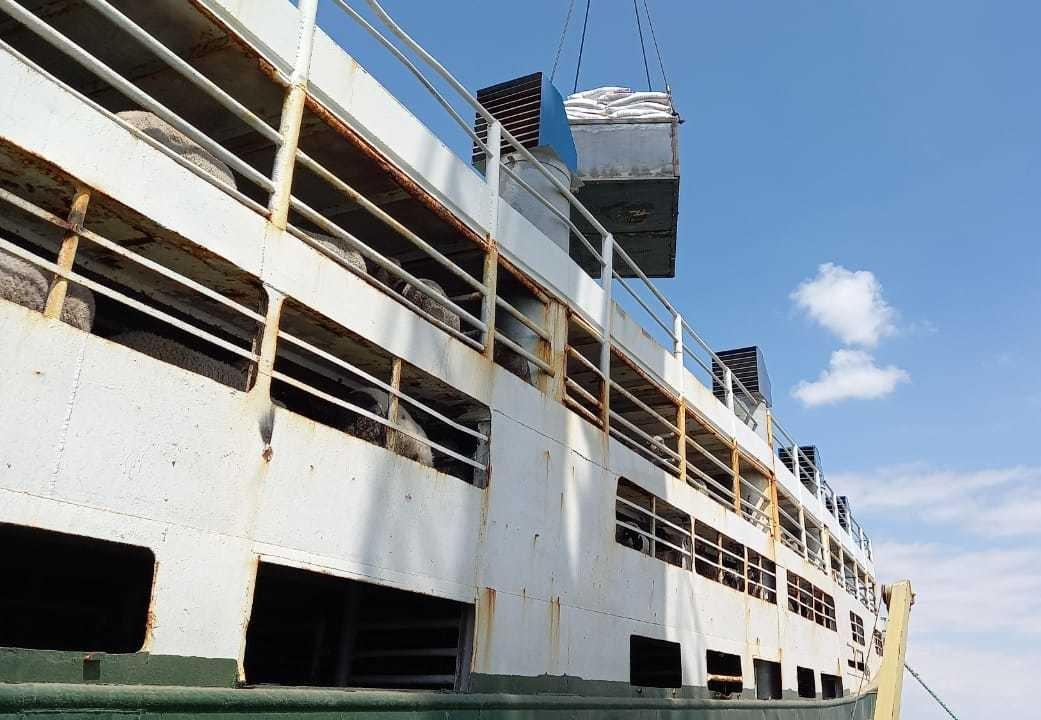
It’s not the end of the road for live animal transportation
While we commend the Government for moving in the right direction, the changes made to live animal transport are not enough to protect animal welfare.
Live animal transport via road and sea has been a contentious issue among animal welfare groups for decades, with recent incidents fueling the fire, such as the sinking of the Queen Hind ship which killed 14,000 sheep, or the Karim Allah and Elbeik in which young cattle were left stranded on ships for more than three months.
Previously, there has been no maximum length of journey times for livestock, meaning that animals can be transported indefinitely until they reach their final destination where they will then be fattened or slaughtered. However, the Government has recently proposed new measures to ensure livestock can only be transported for specific amounts of time depending on their species, as well as increasing headroom and enforcing stricter regulations and checks during extreme weather. While we welcome these attempts to increase welfare for animals, the Government’s response does not go far enough to improve the sub-standard conditions animals are subjected to during transportations.
Let’s break down what stricter measures we wanted to see, versus what the Government have proposed:
Maximum journey times
The Government have proposed a maximum journey time of four hours for broiler chickens, 12 hours for horses (or longer for those in competition or breeding), 18 hours for pigs, 21 hours for cows and sheep, while newly hatched chicks can travel for 24 hours or more if additional undisclosed criteria are met.
However, we demand a maximum journey time of eight hours for cows, pigs, sheep and horses, and four hours for rabbits and poultry. While we commend the Government for reducing journey times for chickens, the length of the majority of these journeys will still cause suffering for many animals, and therefore must be reduced further.
Maximum and minimum temperature
The Government have proposed journeys with poultry can go ahead if external temperatures are between 5°C - 25°C. However, for livestock and horses, all short journeys (those under eight hours) must be under 30°C, while long journeys (over eight hours) can range from 0°C - 25°C, and even allows exemptions for colder or hotter temperatures if the journey is under 65km or if the transport vehicle has thermo-regulation systems.
However, we at FOUR PAWS demand that all journeys, irrespective of duration, should only be undertaken if the external temperature is between 5°C - 25°C, except for lactating cows, spent hens to slaughter (those that cannot lay anymore eggs) and rabbits, where the temperatures should be 5°C-15°C, 10°C–25°C, and 5°C-20°C, respectively.
We believe the temperatures proposed by the Government could cause extreme stress to animals, especially those being transported for several hours.
Headroom allowances
The Government have allocated 10cm headroom allowance for pigs, and 20cm headroom allowance for all other animals being transported.
We at FOUR PAWS demand that animals being transported have sufficient head room to stand up fully, stretch and move. We must see 50cm headroom for cows, 40cm for pigs, calves, and sheep, 30cm for rabbits, and 25-40cm of poultry dependent on their size.
We are absolutely dismayed with the Government’s proposals, which will still leave animals with a minute amount of room – room which is so desperately needed on long arduous journeys.
Sea transportation
The Government claims that there is not enough evidence to make specific decisions about transporting animals over certain wind speeds, and has also said that the decision to allow live animals to travel on a Roll-on Roll-off ferry in extreme weather will be left to the discretion of the ship’s captain.
However, we want to see a complete ban of live animals being transported via ships, as their welfare cannot be guaranteed.As sadly highlighted by the recent tragedies previously mentioned on board livestock ships, live animal transport by sea must be banned once and for all to protect the welfare of farm animals.
Whilst the proposals do not meet all of the demands FOUR PAWS wishes to see for live animal transport there is cause for celebration in the small wins. However, we will not rest on this and will continue to push for the Government to deliver legislation that allows us to proudly stand by our claims to be an animal loving nation.


